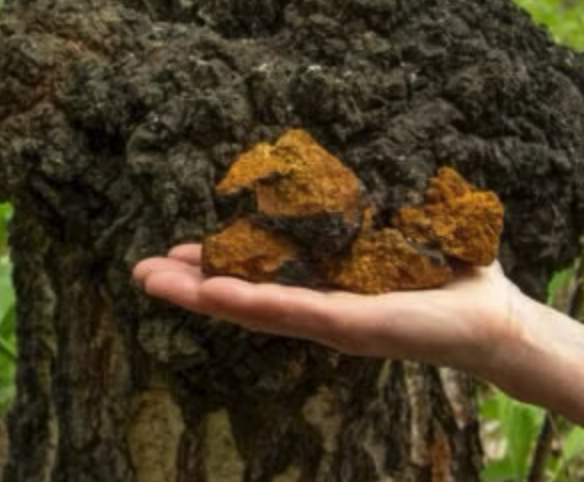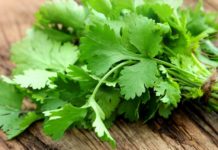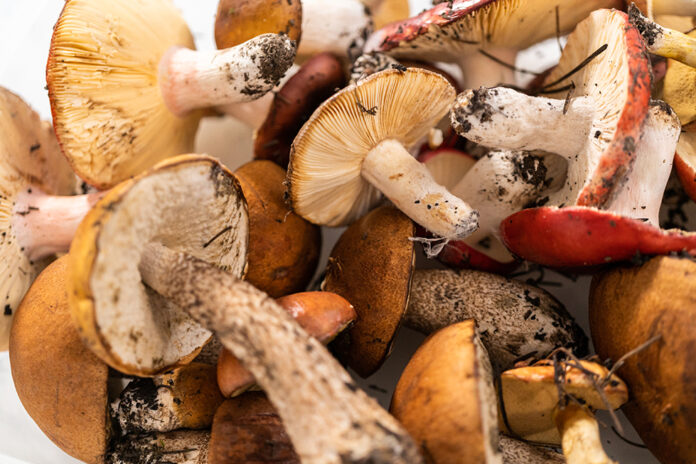
Mushrooms have been used in medicine for over 2,000 years, deeply rooted in traditional practices across cultures. Ancient Chinese medical texts, such as the Shennong Bencao Jing (~200 CE), reference mushrooms like Reishi (Ganoderma lucidum) as the “mushroom of immortality.” Similarly, ancient Greeks and Romans used mushrooms for their nutritional and healing properties. The Greek physician Hippocrates (~400 BCE) recognized fungi as anti-inflammatory agents.
In traditional Eastern medicine, mushrooms have been essential for balancing energy (Qi), enhancing vitality, and treating various illnesses. Western science began studying mushrooms’ therapeutic properties in the 20th century, with discoveries like penicillin (derived from a fungus) revolutionizing medicine.
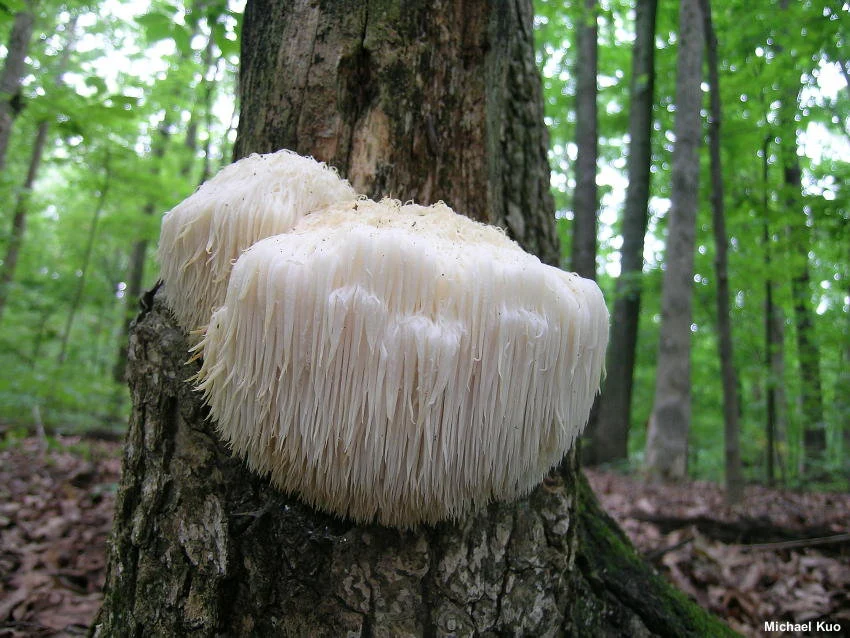
1. Lion’s Mane (Hericium erinaceus)
- What It Is: This shaggy, white mushroom looks like a lion’s mane and is prized for its brain-boosting properties.
- Key Benefits:
- Supports memory, focus, and cognitive health.
- May aid in nerve regeneration, making it useful in conditions like mild cognitive impairment.
- What Science Says: A small clinical trial showed that consuming Lion’s Mane significantly improved cognitive test scores in adults over 50 (Hoshaw, 2022).
- How to Use: Add Lion’s Mane powder to smoothies or soups, or sauté the fresh mushroom.

2. Reishi (Ganoderma lucidum)
- What It Is: Known as the “mushroom of immortality” in traditional Chinese medicine, this glossy red mushroom is a symbol of vitality.
- Key Benefits:
- Reduces inflammation and enhances immune function.
- May support better sleep and stress management.
- What Science Says: Reishi is rich in triterpenes, compounds known to balance the immune system and reduce inflammation (Sliva, 2004).
- How to Use: Brew as tea, or take in capsules or tinctures for daily immune support.
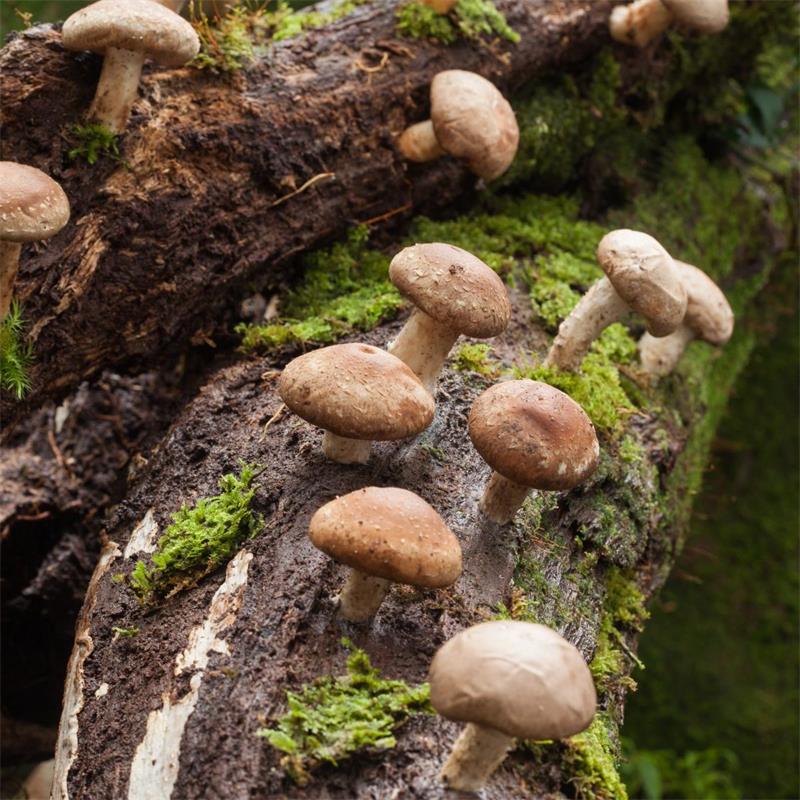
3. Shiitake (Lentinula edodes)
- What It Is: Popular in Asian cuisine, Shiitake is loved for its rich, umami flavor and powerful health properties.
- Key Benefits:
- Boosts immune health with beta-glucans.
- Promotes heart health by lowering cholesterol.
- What Science Says: Shiitake contains lentinan, a polysaccharide with immune-modulating and anticancer properties (Chang, 1996).
- How to Use: Toss fresh or dried Shiitake into stir-fries, soups, or broths.
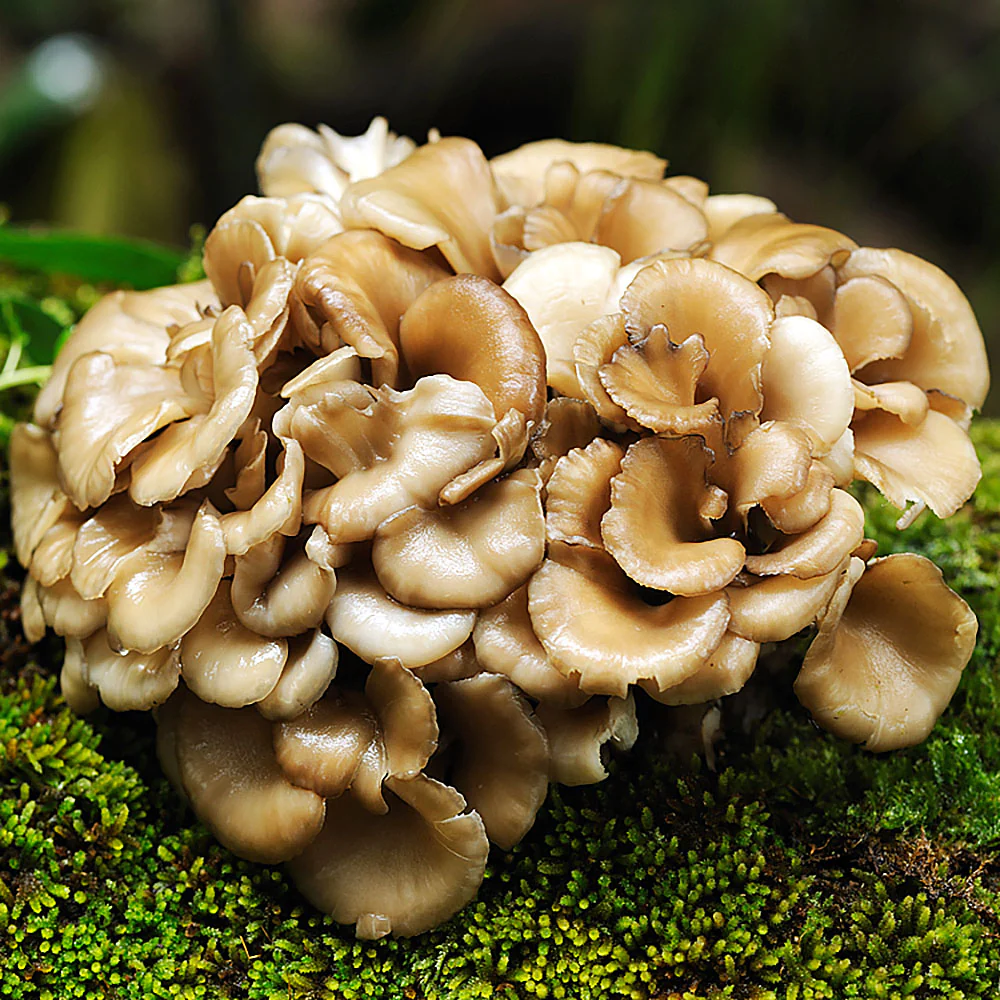
4. Maitake (Grifola frondosa)
- What It Is: Called “hen of the woods,” Maitake grows in large clusters and has a nutty, earthy flavor.
- Key Benefits:
- Enhances immune response and fights infections.
- Contains beta-glucans that may reduce tumor growth.
- What Science Says: Rich in antioxidants and minerals, Maitake has been shown to improve immunity and may support cancer prevention (Cronkleton, 2016).
- How to Use: Sauté with garlic and olive oil or add to grain bowls.
5. Chaga (Inonotus obliquus)
- What It Is: Found on birch trees, Chaga looks like burnt wood but is packed with nutrients.
- Key Benefits:
- A powerful antioxidant, it helps fight free radicals and oxidative stress.
- Supports a healthy immune system.
- What Science Says: Chaga contains high levels of melanin, which may protect cells from DNA damage (Łysakowska et al., 2023).
- How to Use: Brew Chaga chunks into a tea or take it in powdered form.
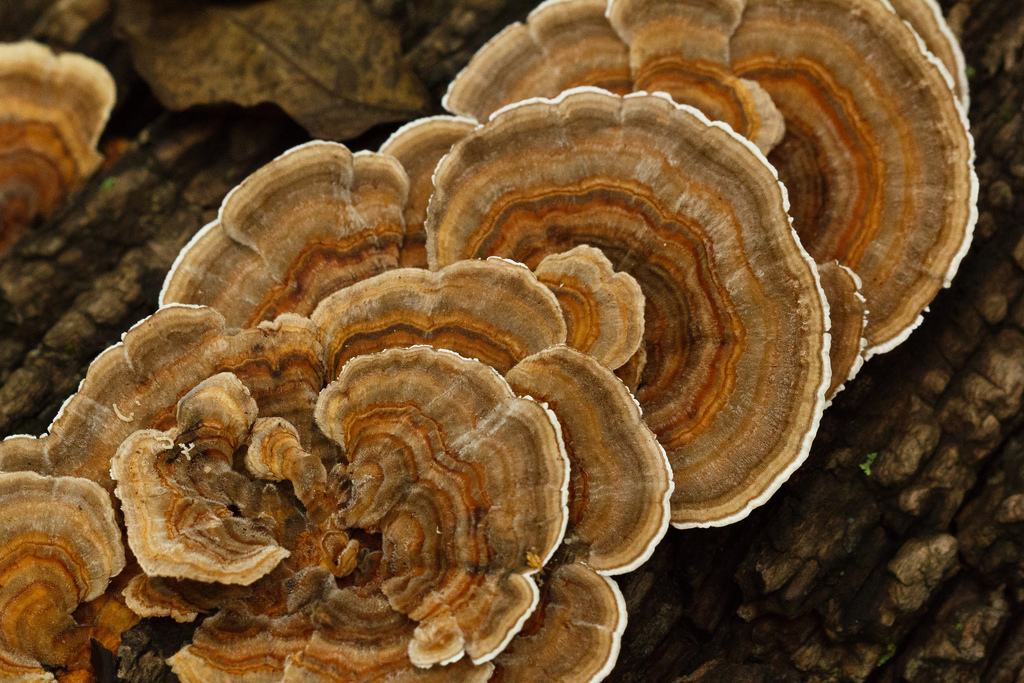
6. Turkey Tail (Trametes versicolor)
- What It Is: This fan-shaped mushroom resembles a turkey’s tail feathers and is prized for its medicinal value.
- Key Benefits:
- Enhances immune function with polysaccharopeptides PSP and PSK.
- Supports cancer treatment, often used alongside chemotherapy.
- What Science Says: Research shows Turkey Tail mushrooms may help the immune system combat infections and slow cancer progression (Łysakowska et al., 2023).
- How to Use: Take Turkey Tail as a powdered supplement or steep as tea.
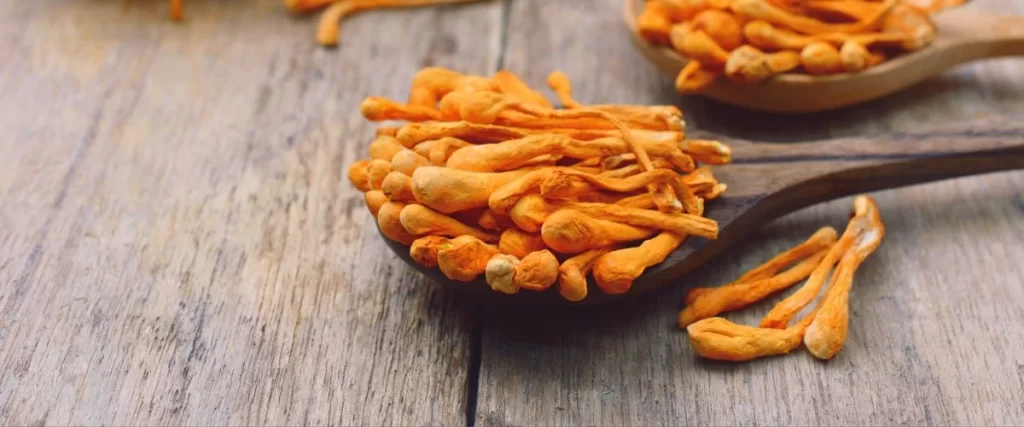
7. Cordyceps (Cordyceps sinensis)
- What It Is: This parasitic fungus grows on insect larvae and is revered in traditional medicine for energy and stamina.
- Key Benefits:
- Enhances energy and athletic performance.
- May improve respiratory health by increasing oxygen efficiency.
- What Science Says: Rich in cordycepin, Cordyceps can improve physical endurance and reduce fatigue (Łysakowska et al., 2023).
- How to Use: Blend Cordyceps powder into coffee or pre-workout smoothies.
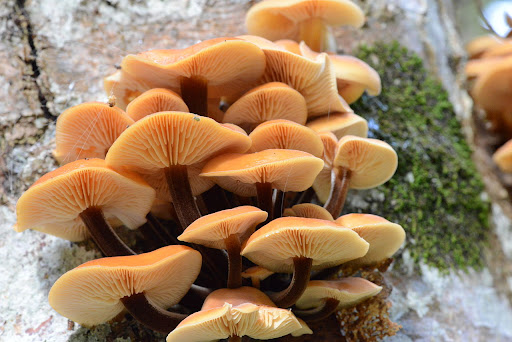
8. Enoki (Flammulina velutipes)
- What It Is: Thin, delicate, and often used in soups, Enoki is a culinary and medicinal gem.
- Key Benefits:
- Contains antioxidants that fight inflammation.
- May reduce the risk of cancer and enhance immune function.
- What Science Says: Enoki has antitumor and immune-boosting properties thanks to its polysaccharides (Chopra et al., 2021).
- How to Use: Use Enoki in ramen, hot pots, or sautéed as a garnish.
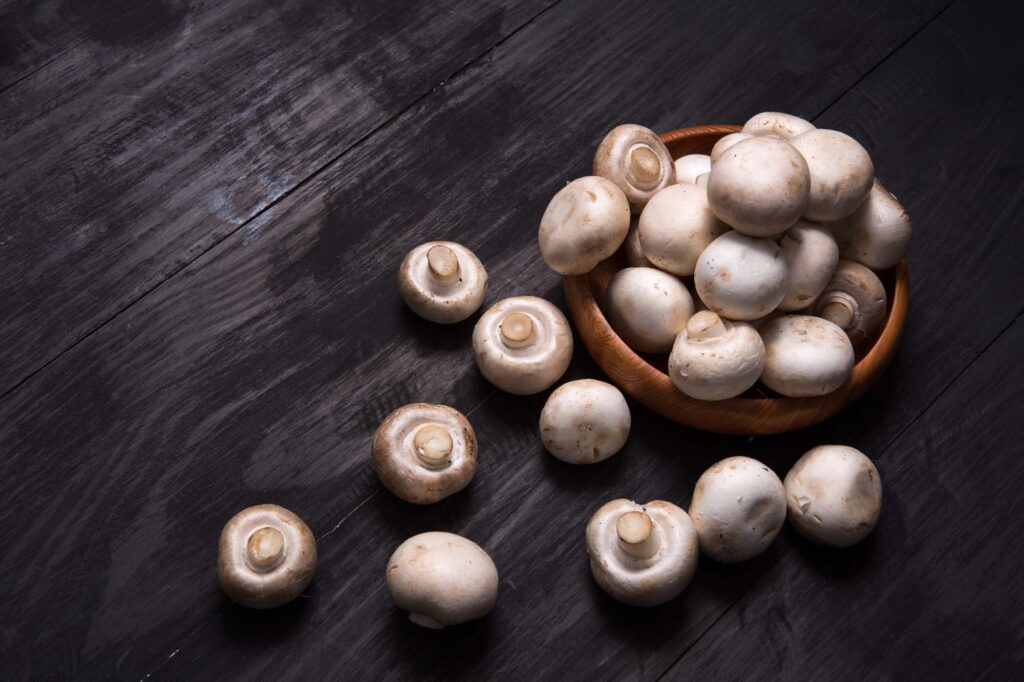
9. White Button Mushrooms (Agaricus bisporus)
- What It Is: The most common mushroom in grocery stores, often overlooked for its health benefits.
- Key Benefits:
- Provides antioxidants to fight free radicals.
- Enhances immune function and overall dietary quality.
- What Science Says: White Button Mushrooms are a rare source of ergothioneine, a powerful antioxidant (Feeney et al., 2014).
- How to Use: Slice and sauté as a side dish, or use raw in salads.
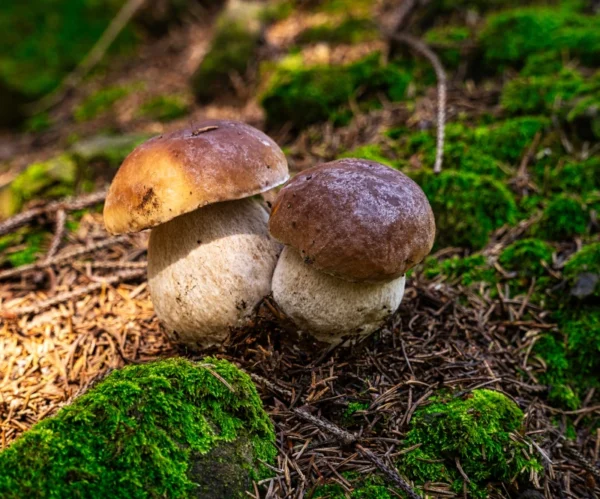
10. Porcini (Boletus edulis)
- What It Is: A gourmet mushroom with a rich, nutty flavor, often found in European cuisine.
- Key Benefits:
- Contains antioxidants that reduce inflammation.
- Promotes cardiovascular health.
- What Science Says: Porcini mushrooms are rich in polyphenols and beta-glucans, which support heart health and immune function (Łysakowska et al., 2023).
- How to Use: Add dried porcini to risottos or stews for an intense flavor boost.
These mushrooms are not just tasty—they’re a powerhouse of health benefits. Whether you’re looking to boost your immunity, enhance brain function, or reduce inflammation, these fungi can support your wellness journey. Add them to your meals, brew them as teas, or explore supplements to tap into their healing potential.





